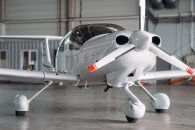If you own an airplane or fly one you don’t own, it’s essential to consider insurance coverage. However, you likely have a few questions if you’ve never opened an airplane insurance policy. One of the most common is, “how much does airplane insurance cost?”
Read on to learn more about the cost of airplane insurance coverage and other things you should keep in mind as you shop for a new policy.
What Is Airplane Insurance?
Airplane insurance is a type of insurance coverage designed to protect you from a significant loss in the event of damage or liability events associated with your airplane or an airplane you’re flying.
As with car insurance, airplane insurance will help cover part or all of the cost associated with an aircraft incident, or even damages to an aircraft while it’s still on the ground. However, unlike car insurance, there is no legal regulation that says you must carry a policy to fly a plane.
Nonetheless, damages to airplanes and liability costs can be significant. So, it’s a wise decision to consider opening a policy if you plan on flying.
What Types of Airplanes Can Be Insured?
Some companies only provide insurance for specific types of aircraft. However, just about any airplane can be insured through the right provider. That includes aircraft like:
- Drones (unmanned aircraft)
- Experimental aircraft
- Helicopters
- Jet (turbine aircraft)
- Multi-engine aircraft
- Seaplanes
- Single-engine aircraft
How Much Money Does Airplane Insurance Cost?
As is the case with any other type of insurance, the cost of airplane insurance varies depending on multiple factors. Moreover, there are two core types of airplane insurance to consider. Those include liability coverage and hull coverage. Find more details on both below.
Liability Coverage Cost
Liability coverage for an airplane is similar to liability coverage for a vehicle. It helps to take care of costs in the event of:
- Bodily Injury: If someone is injured as a result of your activities in an aircraft, your policy will help cover the medical bills that you’re liable for.
- Property Damage: If an airplane incident results in damage to someone else’s property, you may be on the hook for the cost of the damage. Your insurance policy can help.
- Legal Defense: Your airplane insurance will also help cover the cost of your legal defense if an event requires one.
In most cases, liability insurance covers you for damages up to $1,000,000. However, there’s usually a $100,000 cap on coverage for each passenger. These limits are either offered as a combined single limit or a smooth limit.
In most cases, liability insurance costs between $275 and $600 per year unless it’s purchased on a standalone basis. In that case, you can expect an additional 25% cost.
Hull Coverage Cost
Hull coverage is designed to cover the cost of your airplane in the event of damage. This coverage is provided at an “Agreed Upon” amount. That means you and your insurance provider agree on the total coverage cap.
If you need to make a claim, depreciation isn’t a factor, your claim will be paid based on this agreed-upon amount. Moreover, hull coverage typically doesn’t have a deductible.
The cost of hull coverage is usually somewhere between 1.5% and 10% of the total coverage value per year. Your exact cost depends on various factors unique to you.
What Factors Affect Airplane Insurance Premiums?
There are a couple of things you can do to bring the cost of airplane insurance down. In particular, steer clear of claims and pay close attention to the amount of coverage you purchase.
Amount of Coverage
Insurance companies have to consider the risk involved in each policy they write. When coverage limits are high, the risk to the insurance company is equally high. As a result, if you have high coverage limits, you can expect high premiums.
Chat with your insurance agent about your current coverage limits and the insurance you actually need. If you find you’re over-covered, consider reducing your coverage amount to save on premiums.
Claims History
Any time you make a claim on your airplane insurance, you face the risk of increasing premiums. If damages are minimal, it may be better to fix the damage on your own, rather than file a claim, to keep your premiums manageable in the future.
Final Thoughts
Although airplane insurance isn’t a regulatory requirement, it’s a must if you own or fly an aircraft. These policies protect you from significant financial burdens associated with accidents, help ensure that anyone injured in an event has access to the medical care they deserve, and protects you from losing your aircraft or other assets as a result of an inability to cover the cost of damages.
How BWI Can Help
The aviation insurance industry is vital to the safety of the aviation industry. BWI is proud to be a leading provider of aviation insurance. We offer various coverage options and are always here to help our clients find the right policy for their needs.
As a family-owned insurance brokerage, we understand the importance of exceptional customer service and are committed to providing our clients with the best possible experience. We have a team of experienced aviation insurance specialists who have been helping businesses in the aviation industry with their insurance needs for over 40 years.
If you need aviation insurance, we encourage you to contact us today. We’ll be happy to answer any questions and help you find the right policy for your business. Find out more about aviation insurance by visiting www.bwifly.com or calling 800.666.4359 for a free quote.
Continue Reading



